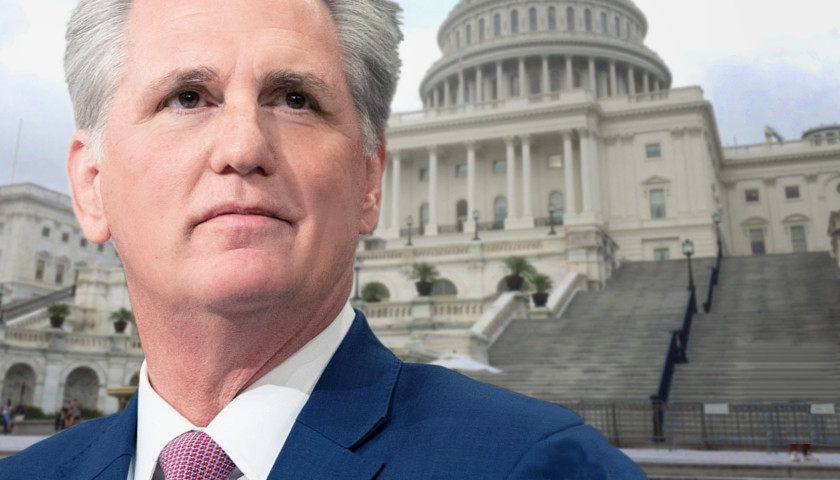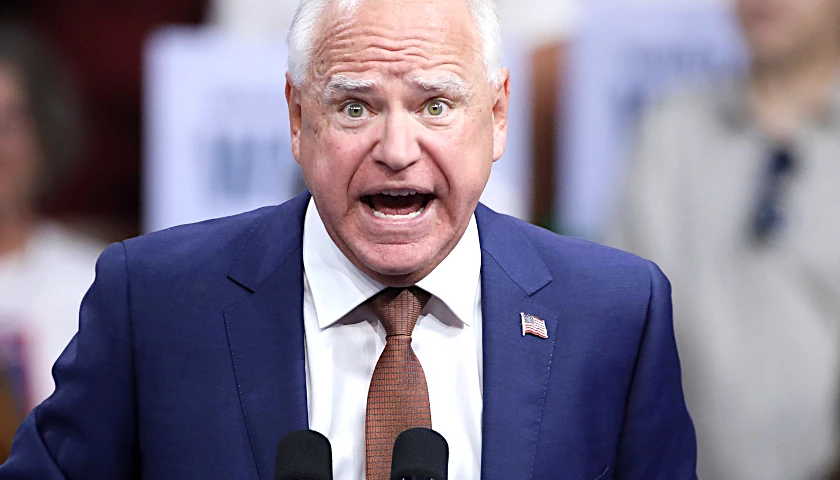by Pedro Gonzalez
In what CNN’s Chris Cillizza accurately described as a “gut punch” to the GOP’s Trumpian faction, the House Republican Conference decided against removing Representative Liz Cheney (R-Wyo.) for her vote to impeach former President Donald Trump. Republicans voted 145-61 on a secret ballot in Cheney’s favor.
Cillizza zeroed in on Florida Republican Matt Gaetz, an ardent defender of the former president. “Make no mistake,” he wrote, “Gaetz, Trump, and the rest of that crowd wanted to make an example of Cheney. They, rightly, viewed her impeachment vote—and the ensuing controversy—as the first major battle for control of the post-Trump Republican Party.” He also notes that “Trump had released a poll last month purporting to show Cheney in trouble in Wyoming for her impeachment vote.” And according to The Dispatch’s Stephen Hayes, Trump was “calling R House members to encourage them to sack Cheney.”
Were he not so giddy about giggling at his political opponents, Cillizza wouldn’t have missed the most crucial part of this story. Who saved Cheney?
The answer is House Minority Leader Kevin McCarthy (R-Calif.), Trump’s new wingman.
In late January, McCarthy met with Trump at Mar-a-Lago. That rendezvous went down just two weeks after McCarthy told his colleagues that Trump “bears responsibility” for the Capitol Building riot. True or not, that comment, one would think, should have put the California Republican out of Trump’s good graces. Apparently not.
“President Trump has agreed to work with Leader McCarthy on helping the Republican Party to become a majority in the House,” read a statement from Trump-aligned Save America PAC after the Mar-a-Lago meeting. “They worked very well together in the last election and picked up at least 15 seats when most predicted it would be the opposite. They will do so again, and the work has already started.”
Not a week later, McCarthy “offered a full-throated defense of Cheney and made the case for her to stay in leadership,” Politico reported. McCarthy held a “family discussion” with Republicans in defense of Cheney—“a critical boost for the Wyoming Republican.”
Trump’s lieutenant, handpicked by him to help remake the GOP, single-handedly facilitated a gut punch to the “Trump wing”—and by extension, millions of Republican voters.
Uniting around Cheney, McCarthy said in a statement, was necessary to stop “the radical Democrat agenda.” Only a “united conservative movement will strengthen the bonds of our citizens and uphold the freedoms our country was founded on.”
What might that look like in practice? The party will remain unified around “creating more jobs, lowering taxes, increasing take-home pay, defending America’s interests around the world,” Newt Gingrich wrote on the day Republicans voted to retain Cheney. In other words, more of the same old policy consensus against which Trump campaigned and won in 2016 before he embraced the same consensus along the way.
In the background of all this is the escalating assault on everyday Americans by many of the corporations and institutions that have benefited from GOP policymaking.
In Time magazine, Molly Ball last week wrote a story about an “informal alliance between left-wing activists and business titans,” a “shadow campaign” designed to manage the 2020 election in the appropriate direction. Ball notes hundreds of “major business leaders, many of whom had backed Trump’s candidacy and supported his policies”—that is, the GOP’s pro-corporate policies—participated in this effort. Fox News host Tucker Carlson also revealed last week that Bank of America has been flagging its customers’ purchasing history, forwarding it to the federal government to determine if they were involved in the January 6 riot. Federal agents interrogated one customer subsequently cleared her of wrongdoing.
Meanwhile, NBC News reports the Pentagon has ordered a complete stand-down of the armed forces “to discuss the threat posed by white supremacy and similar extremism.” Do Gingrich and the GOP know, or care, that the institutions charged with “defending America’s interests around the world” think their constituents are the biggest threat to America?
There is a timeless analogy in Plato’s Republic, the ship of fools, that illustrates the problem of governance in a free political system. It also applies neatly to political parties.
“Though the shipowner surpasses everyone on board in height and strength, he is rather deaf and likewise somewhat shortsighted, and his knowledge of seamanship is pretty much on the same level.” The sailors vie for control of the ship, though none of them know how to steer it in the right direction. They curry favor with the shipowner through flattery and favors so that they, too, can help and aggrandize themselves. They praise grifters the most and unite only to protect their collective interests.
With or without Trump, the GOP remains a ship of fools, sailing idiotically against a dark horizon.
– – –
Pedro Gonzalez is assistant editor of American Greatness and a Mount Vernon Fellow of the Center for American Greatness. Follow him on Twitter @emeriticus.








